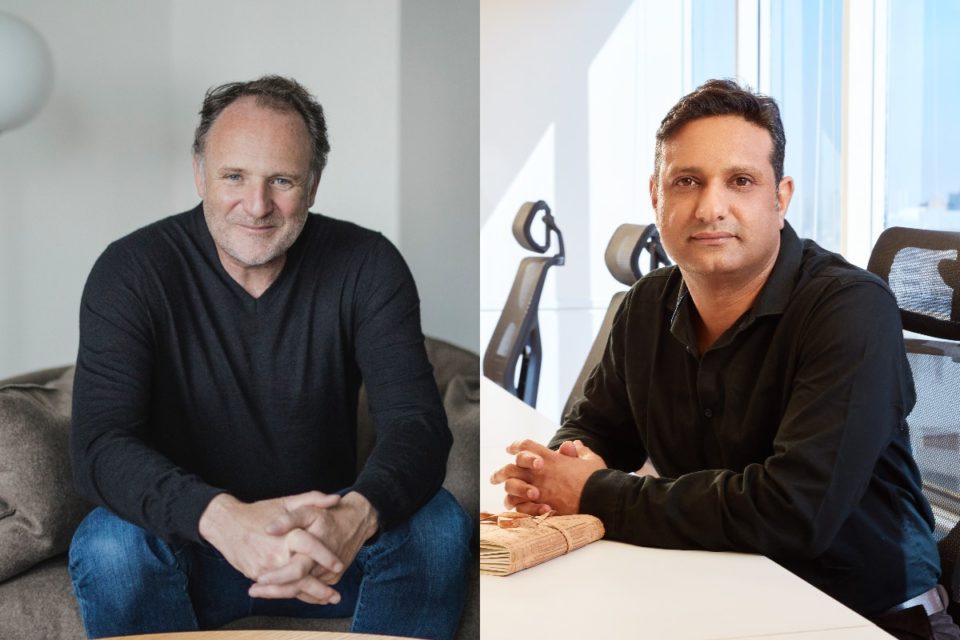Believe’s Founder-CEO Denis Ladegaillerie and India MD Vivek Raina on the Changing Landscape of India’s Music Market
The music platform has laid out plans for upping its artist services as well as partnerships with on-ground events like Ranthambhore Festival in Rajasthan

Believe's founder and CEO Denis Ladegaillerie (left) and Believe India's managing director Vivek Raina. Photo: Courtesy of Believe
Owing to the pandemic, it’s been over a couple of years since global music platform Believe’s founder and CEO Denis Ladegaillerie visited India. But from afar, he’s seen “the rise of independent artists” in India and throughout the world.
Ladegaillerie adds over a video call that they’ve often heard from artists talking about not owning their creative work thanks to the way film soundtrack work is commissioned, but this is changing. “They [artists] tell us that the economics has not been right from a certain standpoint, so our model has been [about] partnering with artists and making sure they own their intellectual property,” he says.
Believe Artist Services has been a name that’s popped up in several spaces in this regard. From pop duo Dream Note to Kannada hip-hop and pop artist All.OK to Pune-bred MC Stan, there’s plenty of work going into each release, tour and promotional cycle from the company. As much as Believe continues acting as a go-to distributor for bigger, commercial labels like AT Azaad by composer-singer Amit Trivedi, Artist Services seems to allow them to tap into the diversity of the market, as does their acquisition (and subsequent India launch) of TuneCore India.
Managing director at Believe India, Vivek Raina says, “The landscape of labels itself has changed in the last three years or so. Over a bit of time, it’s become more artist-centric than the traditional creation of a product. They’re trying to develop raw talent now.” Labels may completely helm artists and repertoire (A&R), but turn to platforms like Believe for “digital expertise, monetization and growing artists’ digital fanbase,” according to Raina.
Given the diversity, Believe terms India as a “multi-market.” Raina breaks it down to language markets as well as regions. “For example, down South, there is still a strong cultural association that people have with film music. What we’ve discovered, though, is that there is music beyond known faces and names. Underground Telugu, Tamil and Kannada hip-hop is coming up, there’s a lot of folk music that’s growing faster.”
South India is among the Believe’s recent focuses, considering they bought a 76-percent stake in Think Music in November last year for €13 million. The company was founded in 2007 and has over 11 million subscribers on YouTube alone, and is known as a major player in the Tamil film music space. More recently, Ladegaillerie says, they’ve used their expertise and taken “a number of actions to increase monetization of these OST catalogs by almost 30 to 40 percent.”
When Raina says they hit each Indian state with a different marketing strategy, it’s not entirely new, considering this is how labels and music companies have always found success – by understanding and targeting local trends. As someone who’s seen the steady shift to digital music consumption from CDs or radio ever since Believe was founded in 2005, Ladegaillerie says the stories they want to tell about artists haven’t changed, but it now depends more on where they tell that story. “When music discovery was happening through T.V., cinema halls and movies, we were telling the story there. Now, discovery happens on YouTube, Instagram and Spotify, so that’s where we tell the artist’s story,” he adds.
Believe also have their eye on the short-form video platform boom, as Ladegaillerie points to TuneCore’s recently launched Social Platforms program, a free service through which creators can make their music available within song libraries of these very platforms, like Instagram and TikTok. He says, “As a music creator, you can do a lot on your own in the first phase of your development. Then, typically, you would need investment to do better marketing campaigns or create better music videos or assets, and you would need expertise.”
Going forward in 2022, resuming the Ranthambore Music and Wildlife Festival in Rajasthan is among the latest developments at Believe. Slated to take place in November this year after missing its date for the past two years, Believe Live will return to helm the multi-genre festival. The overall mission otherwise remains to share expertise and train their teams, plus find “great partners.” Ladegaillerie says, “We’re going to continue with having a number of discussions with people like us who have great ambitions in the market.” Raina adds, “We’ll look at expanding in more markets this year, where we’ll see different sets of artists, different sets of labels and we’ll continue developing them.”







